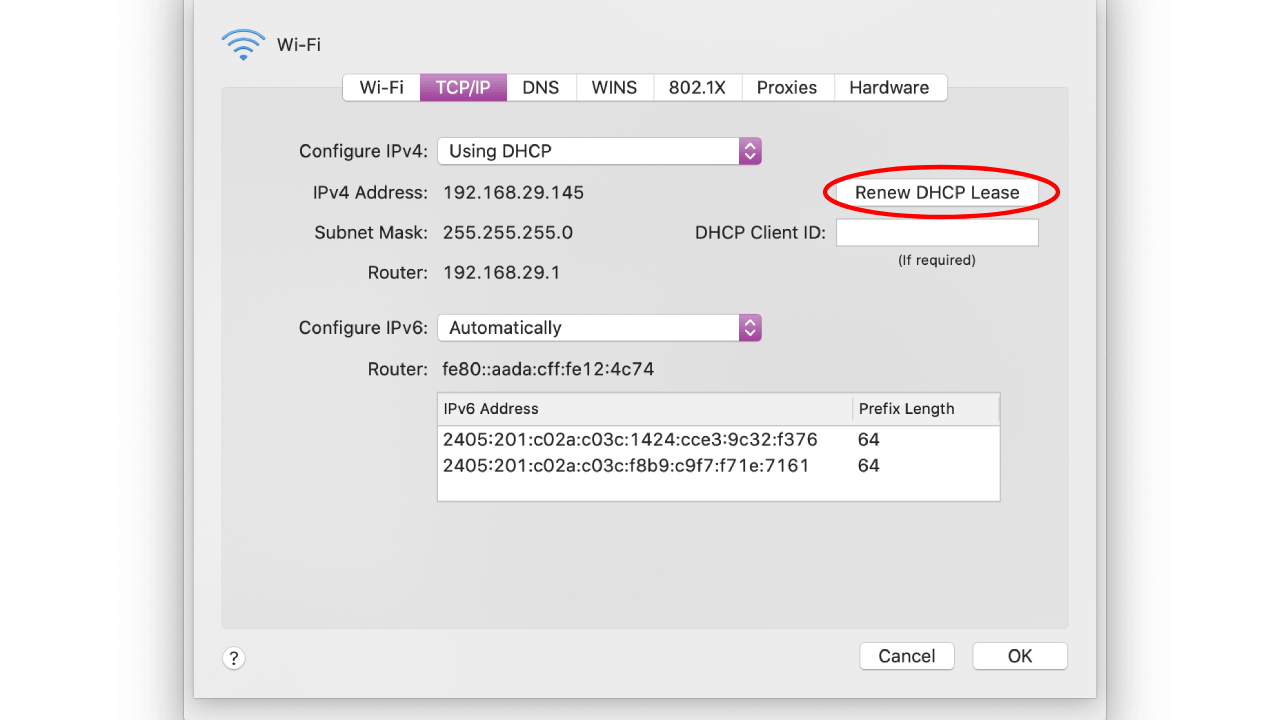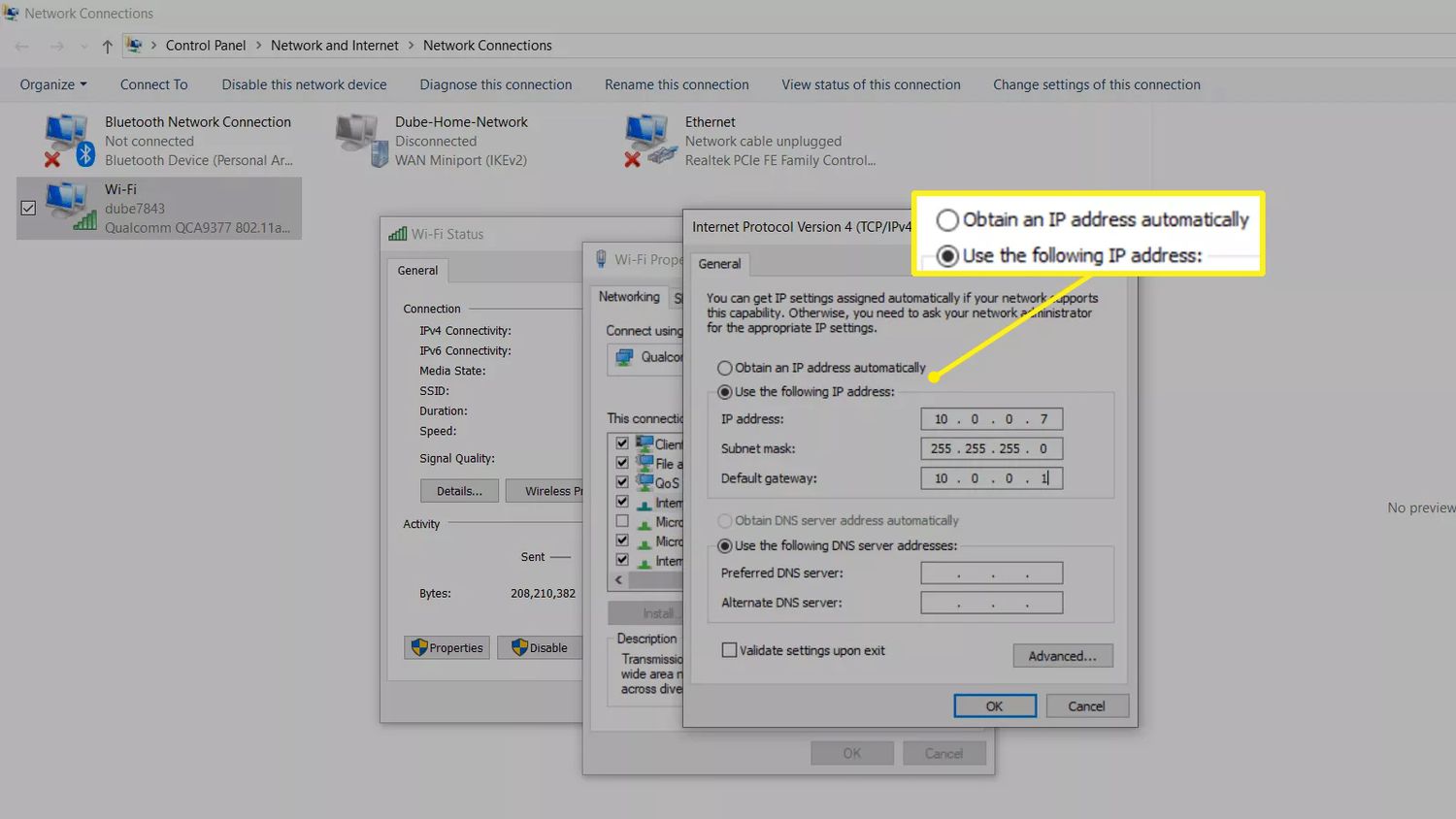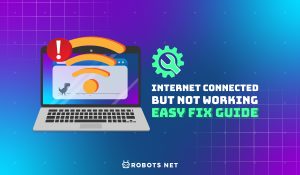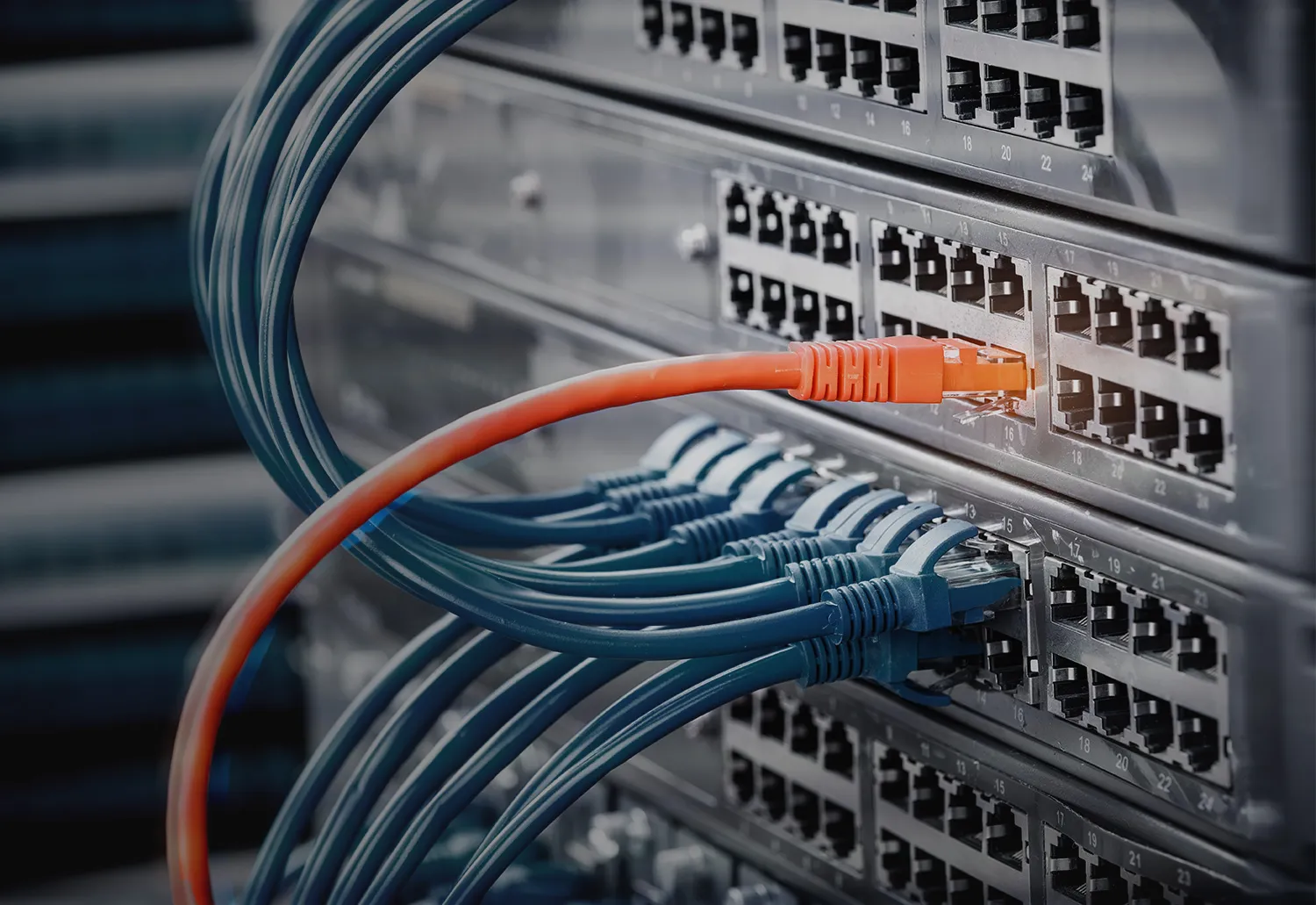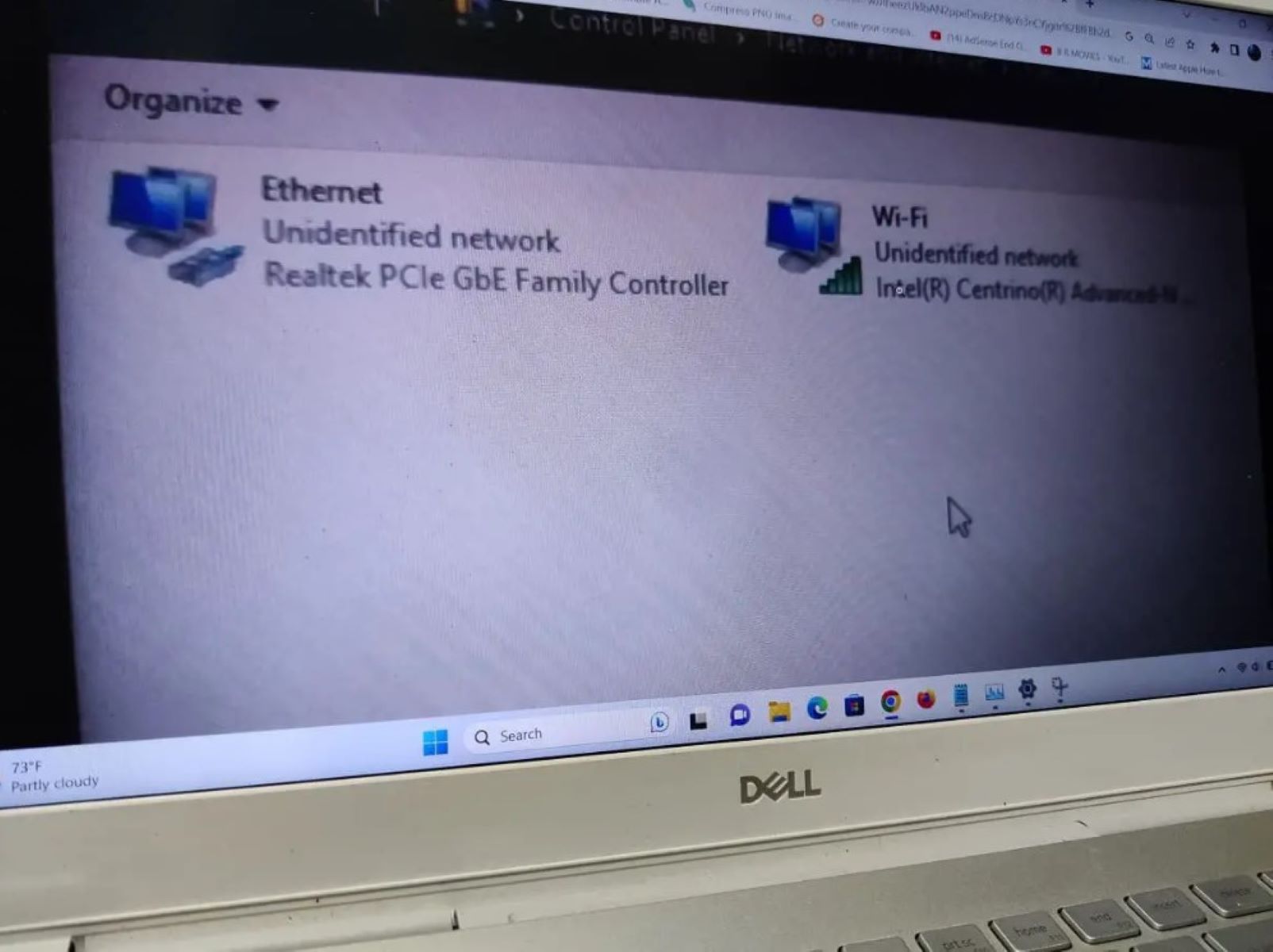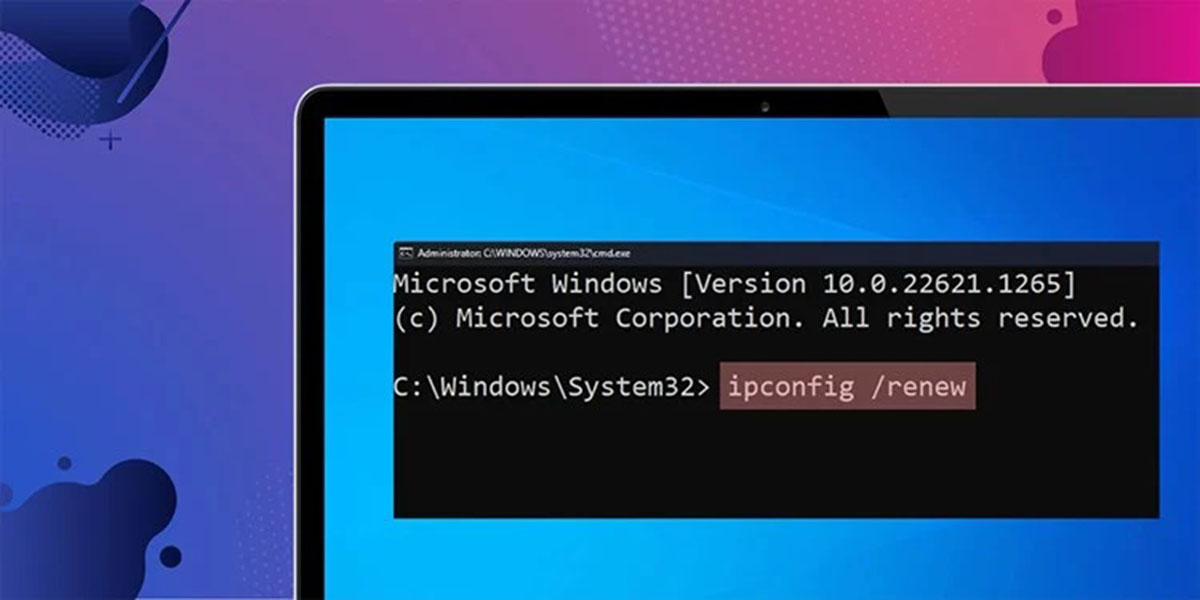What Does Renew Lease Mean On WiFi
When it comes to WiFi connectivity, you might have come across the phrase “renew lease” or “lease renewal.” But what does it actually mean? In simple terms, renewing the lease on WiFi refers to refreshing the dynamic IP address assigned to your device by the router. Let’s dig deeper into this concept to understand its significance in maintaining a stable and efficient internet connection.
When you connect to a WiFi network, your device is assigned an IP address. This IP address acts as a unique identifier that enables communication between your device and the router. The router dynamically assigns IP addresses to devices connecting to it for a specific period known as the lease time. This lease time varies from router to router but typically ranges from a few hours to several days.
Now, what happens when your lease time expires? It simply means that the IP address assigned to your device is no longer reserved for it. The router can reassign that IP address to another device that connects to the network. This can cause disruptions in the network connection and result in slow or intermittent internet connectivity.
To avoid such issues, you need to renew the lease on your WiFi connection. The lease renewal process involves requesting the router to assign a new lease, which means refreshing the IP address for your device. By doing so, you ensure that your device continues to have a dedicated IP address, ensuring a stable and uninterrupted internet connection.
Renewing the lease on WiFi is a simple process, and it can be done on different devices and operating systems. For example, on iOS devices, you can go to the Settings app, select Wi-Fi, tap on the “i” icon next to your network, and then choose the “Renew Lease” option. On Android devices, you can go to the Wi-Fi settings, long-press on the network you are connected to, and select the “Renew Lease” option.
There are several benefits to renewing the lease on your WiFi connection. Firstly, it helps in resolving any IP conflicts that may arise when multiple devices are connected to the network. Secondly, it allows you to acquire a new IP address, which can help in troubleshooting connectivity issues. Lastly, it ensures a fresh and stable network connection, improving your overall internet experience.
Introduction
In today’s digital age, WiFi has become an essential part of our daily lives. Whether it’s for work, entertainment, or communication, a stable and reliable internet connection is crucial. However, sometimes we may encounter connectivity issues, and one term that often comes up in troubleshooting guides is “renew lease.” But what does it actually mean?
In this article, we will delve into the concept of renewing the lease on WiFi and explore its significance in maintaining a smooth and uninterrupted internet experience. We will discuss what lease means in the context of WiFi, how IP addresses are assigned, and what happens when the lease time expires. Moreover, we will explain the process of renewing the lease on different devices and highlight the benefits of doing so.
Understanding the technical aspects of WiFi can feel overwhelming, but it doesn’t have to be. By grasping the concept of renewing the lease, you can effectively troubleshoot connectivity issues and ensure a stable connection for all your online activities.
So, if you’ve ever wondered why your WiFi connection seems sluggish or intermittent, or if you’re curious about the steps you can take to optimize your internet experience, keep reading. In the following sections, we will break down the concept of renewing the lease on WiFi and guide you through the process on various devices. By the end, you’ll have a clear understanding of what renewing lease means and how it can benefit you.
Definition of Lease on WiFi
To understand the concept of renewing the lease on WiFi, it’s essential to first grasp what lease means in the context of internet connectivity. In simple terms, a lease refers to the allocation of an IP address to a device for a specific period of time. This IP address acts as a unique identifier that enables communication between the device and the router.
When you connect to a WiFi network, the router assigns your device an IP address from a pool of available addresses. This assignment is temporary and comes with a lease time, which determines how long your device can keep that particular IP address. The lease time is set by the router administrator and can vary depending on the network’s requirements.
During the lease period, your device uses the assigned IP address to communicate with the router and access the internet. This allows for seamless data transfer and enables other devices on the network to identify and interact with your device.
However, once the lease time expires, the IP address assigned to your device is released back into the available pool for other devices to utilize. At this point, your device’s connection to the router becomes disrupted, and you may experience connectivity issues or a loss of internet access.
It’s important to note that there are two types of IP address assignments: dynamic and static. In dynamic IP address assignment, which is the most common method, the router dynamically allocates IP addresses to devices as they connect. On the other hand, static IP address assignment involves manually configuring a fixed IP address for a device, which eliminates the need for lease renewal.
Overall, lease on WiFi refers to the temporary allocation of an IP address to a device for a specific period of time. Renewing the lease involves refreshing the assigned IP address before it expires, ensuring a continuous and stable connection for your WiFi-enabled devices. In the following sections, we will explore the process of renewing the lease on different devices and discuss its benefits in improving your internet experience.
Understanding WiFi IP Addresses
In the world of networking, IP addresses play a vital role in establishing communication between devices connected to a WiFi network. An IP address is a unique numerical label assigned to each device, enabling the identification and routing of data packets across the internet.
When it comes to WiFi networks, there are two types of IP addresses to understand: the public IP address and the private IP address. Let’s take a closer look at each of them:
- Public IP Address: This is the IP address assigned to your home router or modem by your internet service provider (ISP). It serves as the network’s public-facing address, allowing devices on the internet to establish connections with your home network. The public IP address is unique to your network and is assigned by your ISP via a dynamic or static allocation method.
- Private IP Address: On the other hand, private IP addresses are used within a local network (such as a WiFi network) to identify individual devices. These addresses are reserved for private use and are not unique across the internet. The most common private IP address ranges are 192.168.0.0 to 192.168.255.255 and 10.0.0.0 to 10.255.255.255. Devices within the same WiFi network share a common private IP address range and can communicate with each other using these addresses.
Now, let’s dive into how these IP addresses are assigned to devices on a WiFi network. When you connect a device to a WiFi network, the router assigns it a private IP address from the predefined range. This IP address allows your device to communicate with other devices and the router within the network.
It’s important to note that IP address assignment on a WiFi network typically follows the dynamic allocation method. This means that the router dynamically assigns IP addresses to devices as they connect, based on the available pool of addresses. The lease time determines how long a device can hold onto a specific IP address before it needs to be renewed.
By understanding how IP addresses work in the context of WiFi networks, you can better comprehend the concept of lease renewal. Renewing the lease involves refreshing the assigned IP address for your device to ensure uninterrupted connectivity within the network. In the next section, we will explore what happens when your lease time expires and why renewing the lease is essential for maintaining a stable WiFi connection.
What Happens When Lease Expires
When the lease time for your WiFi connection expires, it can have various implications on your internet experience. Let’s explore what happens when your lease expires and why it’s important to address this issue promptly.
When your lease time on a WiFi network expires, the IP address assigned to your device is released back into the pool of available addresses. This means that the router can reassign that IP address to another device connecting to the network. As a result, your device becomes disconnected from the network, leading to a loss of internet connectivity.
Without a valid IP address, your device is unable to communicate with the router and access the internet. This can manifest in a range of issues, such as slow or intermittent connection, inability to load web pages, or failure to establish network-dependent connections, such as online gaming or video streaming.
Furthermore, when multiple devices are connected to the same WiFi network, there is a possibility of IP address conflicts when leases expire simultaneously. In such cases, devices may end up with conflicting IP addresses, resulting in network disruption and communication errors.
In addition to connectivity issues, expired leases can impact network security. With an expired lease, your device may lose access to security features implemented by the router, such as firewalls or access control lists. This can potentially expose your device to security risks and unauthorized access.
To address these issues, it’s crucial to renew the lease on your WiFi connection before or shortly after it expires. By renewing the lease, you ensure that your device retains a dedicated IP address within the network, allowing for seamless communication and uninterrupted internet access.
In the next section, we will explore what it means to renew the lease on WiFi and provide step-by-step instructions on how to accomplish this on various devices. Whether you’re using a smartphone, tablet, or computer, understanding the process of lease renewal will empower you to maintain a stable and reliable WiFi connection.
What Does Renew Lease Mean
When it comes to maintaining a stable and uninterrupted internet connection, renewing the lease on WiFi plays a significant role. But what exactly does it mean to renew the lease?
Renewing the lease on WiFi refers to the process of refreshing the IP address assigned to your device by the router. When you connect to a WiFi network, the router assigns your device a unique IP address for a specific lease time. This lease time determines how long your device can hold onto that IP address before it is released back into the available pool.
When the lease time for your IP address is about to expire, renewing the lease involves requesting the router to assign a new lease, effectively refreshing your device’s IP address. By doing so, you ensure that your device continues to have a dedicated IP address within the network, allowing for seamless communication and a reliable internet connection.
The process of renewing the lease may differ slightly depending on the device or operating system you are using. Typically, devices provide a straightforward option in the network settings to renew the lease. Once initiated, the device sends a renewal request to the router, signaling the need for a new lease.
Renewing the lease can be beneficial in multiple ways. First and foremost, it helps to resolve any IP conflicts that may occur when multiple devices are connected to the same network. By renewing the lease, you ensure that your device is assigned a unique IP address that is not being used by any other device, avoiding communication issues and conflicts within the network.
Additionally, renewing the lease allows you to acquire a fresh IP address. This can be advantageous in troubleshooting connectivity problems that might arise due to conflicts or other technical issues. By obtaining a new IP address, you essentially reset the network connection, potentially resolving any lingering connectivity issues and improving the overall performance of your WiFi connection.
Furthermore, renewing the lease can provide a sense of security. With a refreshed lease, you can ensure that any security features implemented by the router, such as firewalls or access control lists, continue to be active for your device. This helps protect against potential security threats and unauthorized access to your network.
In the next section, we will explore the step-by-step process of renewing the lease on different devices and operating systems. Whether you’re using a smartphone, tablet, or computer, knowing how to renew the lease will empower you to maintain a stable and efficient WiFi connection.
How to Renew Lease on Different Devices
Renewing the lease on your WiFi connection is a straightforward process. Although the exact steps may vary slightly depending on the device or operating system you are using, the general approach remains consistent. Let’s explore how to renew the lease on different devices.
-
iOS Devices (iPhone, iPad):
- Open the Settings app on your device.
- Select “Wi-Fi.”
- Tap on the information icon (i) next to your connected network.
- Scroll down and tap on the “Renew Lease” option.
-
Android Devices:
- Go to the Wi-Fi settings on your device.
- Long-press on the network you’re connected to.
- Select “Renew Lease” or “Forget Network” (followed by reconnecting to the network).
-
Windows Devices:
- Click on the network icon in the taskbar.
- Right-click on the connected network.
- Select “Forget” or “Properties” (followed by the “Renew lease” button in the Properties window).
-
MacOS Devices:
- Click on the Wi-Fi icon in the menu bar.
- Click on “Open Network Preferences.”
- Find the connected network and click on the “Advanced” button.
- Navigate to the “TCP/IP” tab.
- Click on “Renew DHCP Lease.”
These are just a few examples of how to renew the lease on different devices. The precise steps may vary based on the specific device model and operating system version you have. If you encounter any difficulties, referring to the device’s user manual or searching online for device-specific instructions can provide further guidance.
It’s worth noting that in some cases, simply disconnecting from the network and reconnecting can also trigger the lease renewal process. However, using the dedicated “Renew Lease” option is the recommended method as it ensures a fresh IP address assignment and minimizes potential issues.
By regularly renewing the lease on your WiFi connection, you can maintain a stable and efficient network connection. This process helps resolve IP address conflicts, troubleshoot connectivity issues, and ensure the security features implemented by your router remain active. Now that you know how to renew the lease on different devices, you can confidently address any connectivity problems and optimize your WiFi experience.
Benefits of Renewing Lease on WiFi
Renewing the lease on your WiFi connection offers several benefits that can enhance your overall internet experience. Let’s explore the advantages of regularly renewing the lease on your WiFi network.
1. Improved Connectivity: By renewing the lease, you ensure that your device has a dedicated IP address within the network. This helps to avoid IP conflicts and communication errors that can occur when multiple devices are connected. As a result, you can enjoy a more stable and uninterrupted internet connection.
2. Troubleshooting Connectivity Issues: Renewing the lease can be an effective troubleshooting step if you’re experiencing connectivity problems. By acquiring a new IP address, you essentially reset the network connection, potentially resolving any lingering issues. It offers a simple but powerful solution to address common connectivity challenges.
3. Network Security Enhancement: When you renew the lease, you ensure that your device continues to have access to the security features implemented by the router. This includes firewalls, access control lists, and other security measures. By maintaining these security measures, you protect your device and network from potential threats and unauthorized access.
4. Optimized Network Performance: Over time, the lease on your IP address may expire, leading to a less efficient network connection. By renewing the lease, you acquire a fresh IP address, which can help optimize network performance. This is particularly beneficial if you’ve been using the same IP address for an extended period and noticed a decline in performance.
5. IP Address Management: Regularly renewing the lease can help you manage your IP addresses effectively, especially if you have a dynamic IP address assigned by your ISP. It allows you to acquire a new IP address periodically, potentially masking your online activities and enhancing privacy and security.
6. Preventing Network Congestion: By renewing the lease, you contribute to a more efficient use of IP addresses within the network. This helps prevent network congestion caused by devices holding onto IP addresses for an extended period. By releasing and renewing your lease, you allow the router to efficiently allocate IP addresses to devices in need, optimizing network performance for all connected devices.
In summary, renewing the lease on your WiFi connection offers significant benefits. It ensures improved connectivity, resolves connectivity issues, enhances network security, optimizes network performance, facilitates IP address management, and prevents network congestion. By making it a regular practice to renew the lease, you can maintain a stable and efficient WiFi connection for all your online activities.
Conclusion
Renewing the lease on your WiFi connection is a crucial step in maintaining a stable and uninterrupted internet experience. By understanding the concept of lease renewal and how it impacts your network connectivity, you are empowered to address any potential issues and optimize your WiFi connection.
In this article, we explored the definition of lease on WiFi and its significance in establishing communication between devices connected to a network. We discussed the process of lease renewal and provided step-by-step instructions on how to renew the lease on different devices and operating systems.
Renewing the lease on your WiFi connection offers multiple benefits, including improved connectivity, troubleshooting of connectivity issues, enhanced network security, optimized network performance, efficient IP address management, and prevention of network congestion. By regularly renewing the lease, you ensure that your device has a dedicated IP address, minimizing conflicts and communication errors, and maximizing your internet experience.
So, the next time you come across the option to “renew lease” on your WiFi network, make it a priority to follow the steps and refresh your IP address. You’ll find that doing so can significantly improve the stability and reliability of your network connection.
Remember, the process of lease renewal may vary slightly depending on your device or operating system. If you encounter any difficulties, referring to the device’s user manual or searching online for device-specific instructions can provide further guidance.
In conclusion, understanding and renewing the lease on your WiFi connection contribute to a seamless and enjoyable internet experience. By staying proactive in maintaining a stable and efficient WiFi connection, you can make the most of your online activities and stay connected in today’s digital world.







